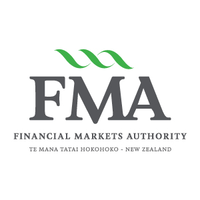Who are the New Zealand Financial Markets Authority?
The New Zealand Financial Markets Authority (NZFMA) acts as the primary government agency for regulating the financial sector within the country.
It regulates all market members, which range from investment firms and financial advisers to trading brokers and exchanges, implementing the various legislative statutes at its disposal and escalating investigations where necessary.
In May 2011, the New Zealand government passed the Financial Markets Bill – this was designed to provide a more stringent code of conduct for the finance industry, which many critics felt had too much freedom, with investors losing considerable sums of money without any compensatory powers. The new Bill led to the creation of the NZFMA, whose primary function was to restore customer confidence in the sector in the wake of the global financial crisis.
The NZFMA took on many of the roles that were previously assigned to the Securities Commission of New Zealand, which was disestablished in the wake of the government’s changes in 2011.
Today, the primary aim of the NZFMA is to achieve a fair, efficient and transparent financial market in the country, with a variety of regulatory statutes the focal point of its work. Where these are contravened, the organisation has a range of disciplinary powers available to it.
Regulatory areas and powers
The NZFMA tends to adopt a preventative approach to breaches of its policies, rather than a reactive one.
This means that it uses a range of legislative notices, including exemptions, public accountability notices and levy waivers to notify companies where they are at risk of breaching the various statutes that the NZFMA applies.
It’s only when an investment firm or broker presents the ‘greatest risk’ to the standards of the financial markets being upheld that the organisation takes stronger action.
All firms have to provide regular self-assessment reporting to the NZFMA with regard to how well they are meeting their obligations, and where these are not being met, the regulator will ask that action plans are created and enforced to ensure improvement. This process of self-reporting also extends to where a firm believes that it has breached market rules.
Using the Financial Markets Bill and the Financial Markets Conduct Act as its guide, the NZFMA can utilise a range of disciplinary actions where there are serious breaches of the rules, and these range from an on-site company search and final warnings to fines and even criminal action in conjunction with the relevant state authorities.
How to check if a broker is regulated by the New Zealand Financial Markets Authority
To operate within the financial sector in New Zealand, a firm must have been licensed and/or authorised to do so by the NZFMA and have official accreditation.
For a customer to access a free dispute resolution service in the case of something going wrong, they must have invested with a licensed operator. The entity search register can be found at https://www.fma.govt.nz/compliance/licensed-providers/.
Making a complaint
There is plenty of useful information on the NZFMA website about avoiding scams – see https://www.fma.govt.nz/investors/scams/ and https://www.fma.govt.nz/investors/resources/.
Where a customer wishes to make a formal complaint against an operator, they should head to https://www.fma.govt.nz/contact/make-a-complaint/, as this page contains all the information about the complaints process and how to submit a complaint.
In the case of serious breaches, a customer can become a whistleblower and take advantage of the legal statutes that protect their rights and their identity. Learn more at https://www.fma.govt.nz/contact/make-a-complaint/whistleblowing-and-informants/.
